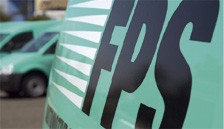Lookers described its move into spare parts three years ago as covering some of the downside in the event of a fall in car demand.
Not everyone was convinced. Previous recessions did not just stop people buying new cars; it stopped them spending on their existing ones as well. Drivers did fewer miles to reduce costs, and the parts consumption actually fell.
But now the hedging experiment is in the shop window. And since the UK slowdown started to bite, the performance of the snappily-named FPS, Apec and BTN has not just held firm – it has moved up a gear.
The businesses were initially a small part of Britain’s second largest listed car retailer. Now, as the fruits of car trading take a dive, the profits from the Stratford-upon-Avon headquartered division are becoming a vital part of the group’s income.
Ken Surgenor and David Dyson, managing director and finance director, might just be wearing a self-satisfied smile when next asked about what they did to control risk within the Lookers group.
But is the parts and distribution mini-group of companies going to keep it up long enough to get Lookers through the recession unscathed?A new start in 2004
Lookers developed a taste for the parts business in 2004 and by last year had Apec, a brakes business, and BTN, automotive turbochargers.
The man who runs the company for Lookers is Terry Wainwright, who has 40 years’ experience in the autoparts and distribution business.
He describes it as a great deal for everyone.
There are lots of synergies but they are all of the ‘look, don’t touch’ variety.
Respect for its franchises
Lookers uses many millions worth of parts in its workshops but does not sell any of its own out of respect for its franchises which expect to sell their own brand of parts through the Lookers service bays.
There are obvious synergies in Lookers and FPS purchasing parts together, but Lookers will have none of it. “There’s no transaction between us and Lookers,” Wainwright says.
“What we do have is stable and steady revenue streams rather than intense cycles. Lookers bought stability and predictability.”
That is what FPS and co are now delivering. FPS sales this year will be £100 million – up 10%. Wainwright reckons it is a good business model: FPS is a warehouse distributor and there are many of them.
But it’s the leader because it has 22 branches and can do same day delivery and overnight stock orders – nationally.
“We have competitors regionally of course, but no-one else nationally matching our national delivery frequency,” Wainwright says.
Apec products
Apec is a specialist programme builder and packager of braking products. It buys from the makers, sticks it in a catalogue, packs it, and takes it to market.
“We think it has a market share of 20%. We think it is the market leader in friction. There is no doubt that we have the best catalogue, whether it is electronic or paper, and the business is growing at 20% per annum.”
Apec has just moved into wet parts – the hydraulics. It has been working on it for two years and just popped up in the market.
BTN was another business where the owners were retiring but wanted the managers to continue. “BTN is focused on the turbo niche and is a distributor which puts all three of our businesses in distribution, so it fits right in,” says Wainwright.
Fifteen years ago the number of turbos in service in the UK was half a million. Now it is more than 10 times that and turbo-charging is almost standard practice for diesel because the efficiency gain is so great.
The growth in the aftermarket for spares is 20%. BTN is all-brands, and is sole distributor for Garrett, the world’s largest specialist.
Reaping 10% margins
Lookers only paid £4m for £12m of sales, and is probably reaping 10% margins. It declared a half-year profit of £8m on sales of £120m for the whole division, which suggests profits for FPS might be £5m.
On the evidence of those results announced in August, Lookers is annualising profit at £30m on sales of £2bn.
Will there be more acquisitions? “Maybe.
When people have after-market businesses to dispose of and call us we do occasionally take a look. We like businesses that are well managed, profitable and have good cash flow,” says Wainwright.














Login to comment
Comments
No comments have been made yet.